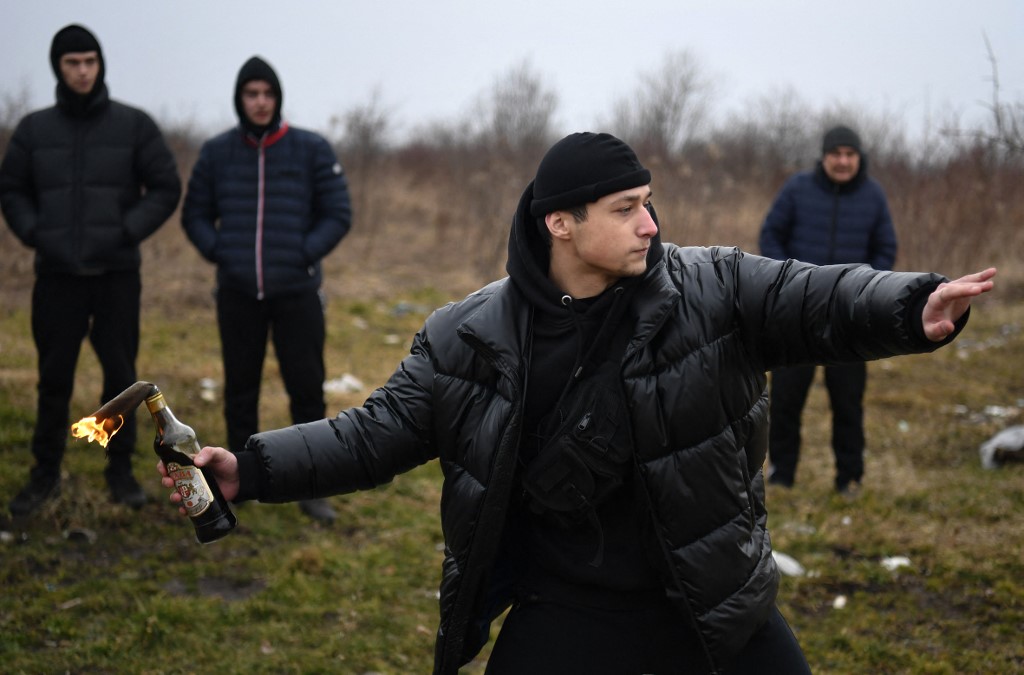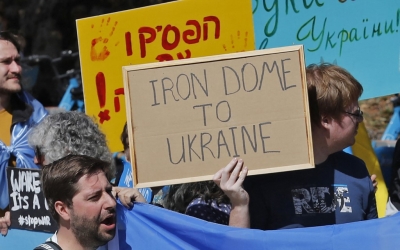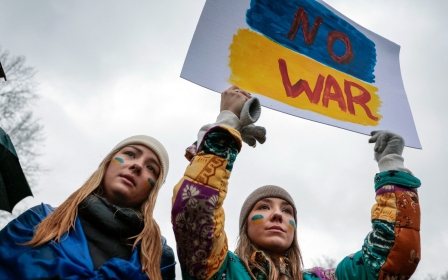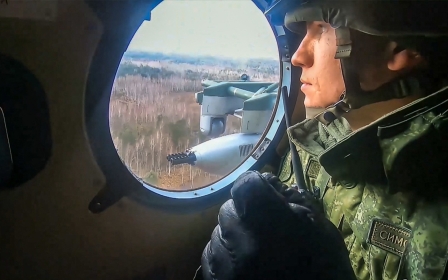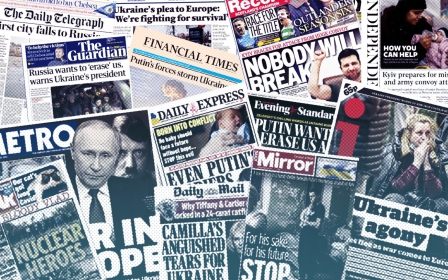The West is right to hold Moscow to account for its crimes, but what about Israel?
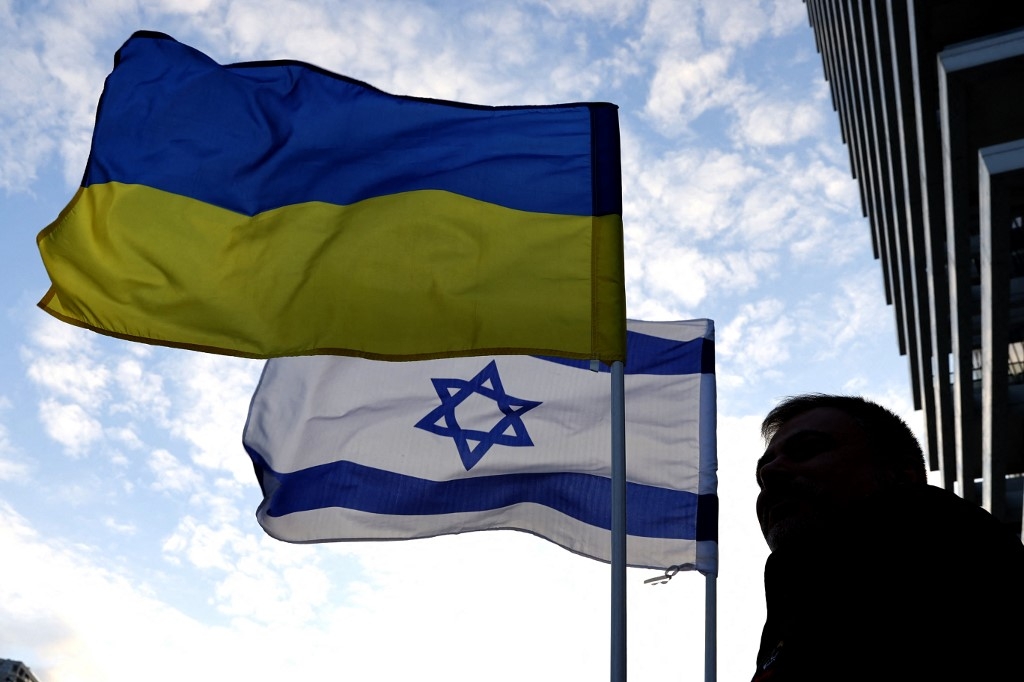
Amid the apocalyptic horror of Russia’s war on Ukraine, the outlook is grim - this war of aggression will result in untold casualties, massive displacement and long-term suffering, not just in Ukraine, but also in Russia, where civilians will pay for the Kremlin’s deadly folly.
For Palestinians, this newfound western zeal for adherence to international law is particularly irksome
Yet, there is one positive sign. Europe and the US have reasserted their support for the primacy of international law and accountability. Having done so little when Putin invaded and annexed Crimea in 2014, the reaction this time is far more assertive. Leaders have extolled the need to stand up for Ukraine’s sovereignty and for the key international legal principle of not acquiring territory through war.
Yet, what stands out for many in the developing world - not least the Middle East - is why these reactions are coming only now. Most do not begrudge the support given to Ukrainians, but they wonder where it was during their own struggles. In war-scarred countries such as Syria, people are all too aware of what Ukrainians are going through.
Syria was, after all, the testing ground for Russian weapons now being used in Ukraine. Its schools and hospitals lie flattened from Russian bombs. While this prompted an outcry, it was nothing in comparison to what we’re seeing now. Concern for Syrian refugees was fleeting, as media attention quickly moved on.
And for Palestinians, this newfound western zeal for adherence to international law is particularly irksome. During decades of Israeli occupation, the international community has done next to nothing to enforce its own laws on occupation. American and European official statements largely ignore the issue, hesitant to even mention the term “occupation”.
Clear similarities
The similarities between Russia’s occupation of Crimea and Israel’s occupation of the Palestinian territories and the Golan Heights are obvious. Russia has reportedly resettled hundreds of thousands of its citizens in the annexed peninsula, just as Israel has done in occupied Palestine. Both operations are colonial and illegal.
At the same time, Ukrainian refugees are being welcomed into the EU, especially if they are white - but who backs Palestinian refugees when it comes to securing their right of return and long-undelivered compensation?
When Ukrainian civilians start making Molotov cocktails to resist the Russians, they are rightly lauded as brave heroes. But if a Palestinian child throws a stone at an Israeli soldier, the child faces a military court and is labelled a terrorist, while the world says nothing.
Palestinians in Gaza will also note similarities in circumstance with Ukrainians. In repeated wars, Israel has bombed civilian infrastructure, including Gaza’s power plant, hospitals, universities and schools. Where were all the international calls for a no-fly zone or a safe corridor?
For 15 years, two million Palestinians in Gaza have been collectively punished by the Israeli-Egyptian blockade. Collective punishment is a war crime. While it is true that Hamas and other groups launch rockets at civilian targets inside Israel - also war crimes - the international community isolates Hamas while embracing Israel.
The most stunning and galling difference is how the West has already held Russia to account for its crimes in Ukraine, in contrast to Israel’s in Palestine. The Ukraine war is just over a week old, and already a raft of extremely tough sanctions have been levied on Russia. Global companies such as BP and Ikea are divesting. Russia is being expelled from a host of sporting and cultural events, from the World Cup to the Eurovision Song Contest. The International Cat Federation has even banned Russian cats from competitions.
Accountability measures
Many of those pushing such actions are the same ones who slammed far less significant moves against Israel for its violations of international law, such as the boycott, divestment and sanctions (BDS) movement, which has been decried as antisemitic. In the US, states have used anti-boycott laws against companies that refuse to conduct business with illegal Israeli settlements.
Boycotts are arguably too blunt a tool. Accountability measures should focus to the greatest extent possible on those actually responsible for war crimes. This is perhaps even more the case for Russians, who do not have a credible opportunity to democratically remove their leader.
Already, the International Criminal Court (ICC) has opened an investigation into possible Russian crimes in Ukraine. Palestinians had to wait ages for the same thing, and the US has heavily criticised the ICC’s decision to launch a Palestine inquiry.
Israel’s supporters have been quick to bash any attempts to compare Ukraine and Palestine. Jonathan Greenblatt, who heads the Anti-Defamation League, tweeted: “To compare this complexity to Russia’s brute use of force against the sovereign & peaceful nation of Ukraine is to intentionally misrepresent the Israeli-Palestinian conflict, and is deeply insensitive to the security and humanitarian crisis confronting Ukrainians today.”
Innocent Ukrainians and Russians, like all peoples caught up in war, deserve our support. But even now, as the international world order has been shredded, we should campaign for the world order we want to emerge next.
Let us welcome this renewed affection for international law and accountability, as well as the public outpouring of empathy for Ukrainian refugees. And let us hope that going forward, this can be extended in response to all wars and aggressions - to all peoples, and to all refugees who need our support.
The views expressed in this article belong to the author and do not necessarily reflect the editorial policy of Middle East Eye.
“We rely on freedom-loving people across the world to stand with us,” Salem says. “We are sure people will support us. Our cause is right.”
Soldiers of the Polisario Front launch a rocket against Moroccan forces near Mehaires, Western Sahara in October 2021 (AP/Bernat Armangue)
This article is available in French on Middle East Eye French edition.
Middle East Eye propose une couverture et une analyse indépendantes et incomparables du Moyen-Orient, de l’Afrique du Nord et d’autres régions du monde. Pour en savoir plus sur la reprise de ce contenu et les frais qui s’appliquent, veuillez remplir ce formulaire [en anglais]. Pour en savoir plus sur MEE, cliquez ici [en anglais].



